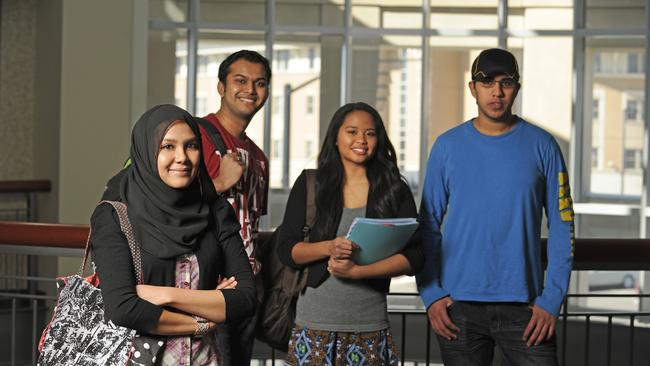QS says it sees no conflict of interest within its business
Influential university rankings group QS says its decisions on rankings are made independently from its international student business.

Leading university rankings company QS says there is no conflict of interest between its business as an international student recruiter and its rankings, which are closely followed by international students.
QS senior vice-president (institutional performance) Ben Sowter said the company’s recent major changes to its global rankings methodology, which led to Australian universities soaring up the list and overtaking many prestigious world universities, were made independently from its international student recruitment business, which provides services to most Australian universities.
“The way in which we construct the rankings and govern the decisions that are made is all kept very separate from commercial considerations,” Mr Sowter said.
Australian universities’ success in the 2024 QS World University Rankings is certain to boost demand from international students for Australian degrees, particularly in China where rankings are followed closely.
When the QS rankings were released two weeks ago, Chinese social media exploded with the news, particularly focusing on the three Australian universities that rose to the world’s top 20 – the University of Melbourne, the University of Sydney and the University of NSW. A record nine Australian universities are now in the QS global top 100.
The rankings boost, and excitement it generated about Australia among international students, is a boon to the QS student recruitment arm, which is contracted by most Australian universities to help them develop leads in student source countries and convert them into enrolments.
QS boosted its presence in Australian international student recruitment when it bought Hobsons Solutions, a company with deep relationships with many universities, in 2017.
Mr Sowter said Australia was a significant, though minority, market for QS and the company did not see a conflict of interest arising from the situation. He said QS had “clients and partners in pretty much every territory that’s affected one way or the other by the rankings”. He said there were a significant number of QS university partners for student recruitment in Australia, Britain and increasingly the US.
He also said the QS rankings had “an independent advisory board that helps validate the choices that we’re going to make”.
Mr Sowter said QS, for reputational reasons, would never allow other commercial considerations to influence decisions on rankings.
“We live and breathe in a sector that trusts us, and our reputation is central to our ability to continue to operate and be partners with all of those institutions worldwide. And that reputation is dependent on us doing this kind of work intrinsically, independently and separate from all of that (student recruitment),” he said.
“It would be a fantastic way to bring a business to a swift end were we seen to deliberately manipulate our designs or our outcomes to serve any particular commercial interest.
“Universities would distance themselves very quickly if we were inclined to lean into those sort of short-term opportunities and sacrifice the importance of our long-term reputation.”
QS communications director Simona Bizzozero said the company’s international student recruitment work in Australia was centred away from the top-ranking universities that benefit most from the rankings boost.
“In Australia we basically serve 36 institutions and, of these, five are large clients. And of these large clients, only one ranks amongst the top 200,” she said.
While Australian universities nearly all rose in their ranking following the QS methodology change, South Korea’s top research universities fell, and they said the QS rankings had “mathematical flaws”, according to University World News.
Mr Sowter replied that there was no mistake in calculation. “We have gone and double-checked our data,” he told University World News.




To join the conversation, please log in. Don't have an account? Register
Join the conversation, you are commenting as Logout